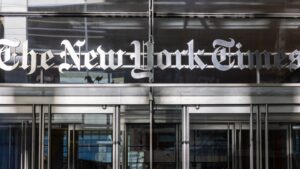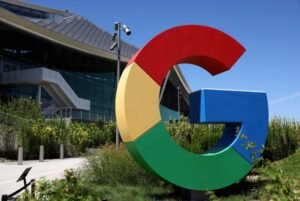Insights on AI Licensing from the Washington Post’s Partnership with OpenAI

The Evolving Landscape of AI Content Licensing Deals
The Washington Post has recently become another significant publisher to enter into a licensing agreement with OpenAI, joining a group of over 20 news organizations involved in similar partnerships. This trend highlights an ongoing pattern where OpenAI regularly secures deals with publishers to enhance its content resources, but the specifics of these agreements are changing.
Shifts in Licensing Agreement Terms
The latest agreement between The Washington Post and OpenAI, announced on April 22, emphasizes displaying summaries, quotes, and original links from The Post in response to user inquiries. This differs from past agreements made with publications such as Axel Springer and Time, where the contracts explicitly allowed for the use of their content to train OpenAI’s language models.
The Guardian’s deal, which was revealed in February 2025, also mirrors the recent changes seen in The Washington Post’s agreement. It similarly avoids mentioning any stipulations regarding training data. The lack of clarity about how training data is handled in these contracts has sparked concerns among media law experts, hinting at a broader transformation in the way AI content licensing is structured.
Implications of Evolving Agreements
Experts suggest that these changes could indicate a shift in focus for publishers. They might now favor agreements that ensure their content is attributed appropriately and visible in AI-driven search results, rather than simply providing data for model training. With AI firms already having access to substantial online content, the need for additional training data from publishers is less critical.
Aaron Rubin, a partner at the law firm Gunderson Dettmer, points out that continuing to license data for training could be seen as an acknowledgment that previous data scraping practices were inappropriate. This is especially relevant considering the legal challenges faced by AI companies regarding copyright infringement.
The Benefits of New Licensing Structures
This evolving landscape benefits both AI companies and publishers. AI developers gain access to accurate and timely information from reputable sources, enhancing the value of their services in providing current event updates. Publishers, on the other hand, are looking to regain traffic that may have diminished due to rising AI technology. Improved attribution in AI outputs, particularly from platforms like ChatGPT Search, could potentially direct more visitors to publisher websites.
Rubin emphasizes that these arrangements could lead to increased revenue opportunities for publishers, who are banking on the idea that future media consumption will increasingly involve interactions with such AI tools.
The Role of AI in the Media Landscape
OpenAI has been making strides in competing with established platforms, particularly with its ChatGPT Search feature launched in October 2024. This depends heavily on partnerships with news organizations to provide relevant content in response to user inquiries.
An OpenAI spokesperson noted that their deals include direct access to content from publishing partners, allowing ChatGPT to display summaries, quotes, and references to original reporting as part of its response mechanism. Despite their significant role in shaping these partnerships, OpenAI remains reticent about discussing the evolving structure of their agreements.
Trends and Financial Dynamics
The future of these publishing partnerships appears uncertain, especially as industry experts suggest that the monetary value of such licensing arrangements is decreasing. Nicholas Thompson, CEO of The Atlantic, recently commented on the decline, indicating a shift towards focusing on driving traffic rather than merely providing content for training purposes.
John Monterubio, an attorney with Loeb & Loeb, echoes this sentiment, asserting that future deals will likely concentrate on enhancing visibility in generative AI search results. This represents a new approach akin to search engine optimization (SEO) in the digital advertising realm.
Key Facts and Figures
- $50 million: The losses faced by The Los Angeles Times in 2024.
- 50%: The percentage of U.S. adults surveyed who anticipate a negative impact of AI on news quality over the next two decades, per a Pew Research Center study.
- $100 million: The total payments made by Spotify to podcast publishers and creators since January of the current year.
Ongoing Concerns in the Industry
The challenges in regulating AI usage are underscored by the ongoing legal battles publishers face against AI firms. The recent lawsuit from Ziff Davis against OpenAI reveals the difficulties for publishers attempting to protect their content against unauthorized scraping.
Publishers are increasingly reliant on third-party platforms like Google, Facebook, and emerging entities like TikTok to regain lost traffic and revenue. The fluctuating dynamics of the media landscape pose both challenges and opportunities for adapting to evolving technologies and consumer behavior.






